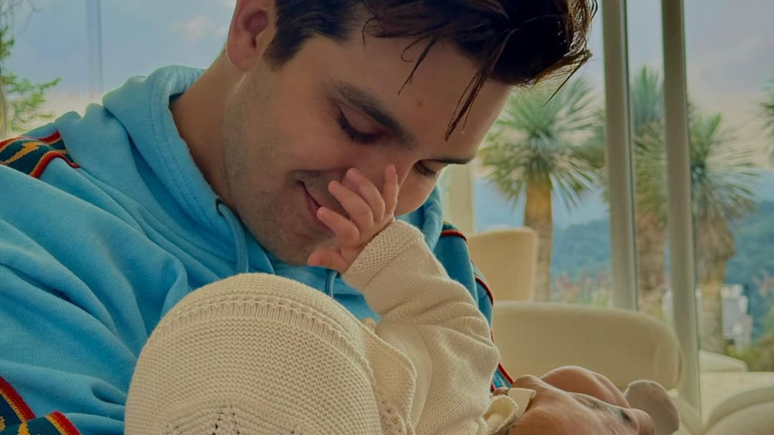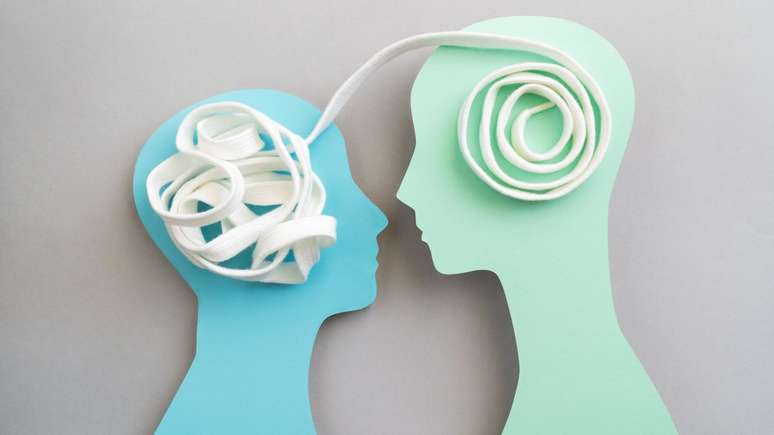In addition to the singer, other celebrities, such as Sandy and Gisele Bündchen, publish only images in which their children appear on the back
In an interview with ‘GQ’, The singer Luan santana He explained his decision not to show the face of Serena Daughter, seven months, on social networks. The choice, also followed by artists such as Sandy, Lucas Lima AND Gisele BündchenIt is supported by pediatricians and psychologists. Understand:
Luan Santana comments on the decision
For the magazine, the compatriot said that he and his partner, the influencer Jade MagalhãesThey chose to keep the baby away from the media to ensure healthy childhood. Second Luan santanaA public life compromises freedom, described by the singer as “Essential trait of this phase”.
“We wanted to protect Serena on the difficult side of the exhibition. Childhood is a sacred time – the moment of life without haste, without pressure and far from the spotlight. He must have this playful, free from external interference”, clarified.
Therefore, during this period, the famous will avoid publishing photos and videos with the little face of the baby on their profiles on social networks. However, Santana said that if her daughter wants to become a public figure when she grows up, she will receive the support of her parents. “If one day he wants, he will have the freedom to appear, show himself and do what he wants. But for now, our role as parents is to protect with all the love of the world”, declared.
What are the risks of exposure to children?
Beyond compatriot, other celebrities, such as Sandy, Gisele Bündchen AND Justin BieberThey only publish images in which their children appear on the back. This practice, however, is not common in many families. According to a survey of the British company AppointmentsParents publish, on average, about 195 photos per year of children under five years.
The custom may seem harmless, but experts underline that it represents a risk to the emotional health of the little ones. In an interview with ‘O globe’, the pediatrician Libiana Arantes de Araújo He stressed that social networks make the brain of young people dependent on dopamine, the pleasure hormone.
Therefore, early use causes the overvaluation of the platforms, which distort the perception of reality and causes mental disorders. “This constant presence can cause an increased risk of depression and anxiety disorder. When the child is inserted in that universe, you are training it, from a child to evaluate the search for the social network.”he said.
In addition, according to the professional, this exhibition can still affect the relationship with the parents. “It generates discomfort and, above all, a breakdown of the child’s trust in relation to those who should watch over her. Depending on the type of post, he can feel ridiculous or stereotyped, leaving signs in his long -term self -produced,” “ concluded.
Source: Terra
Ben Stock is a lifestyle journalist and author at Gossipify. He writes about topics such as health, wellness, travel, food and home decor. He provides practical advice and inspiration to improve well-being, keeps readers up to date with latest lifestyle news and trends, known for his engaging writing style, in-depth analysis and unique perspectives.





![A Better Life Preview: What’s in store for Friday, October 24, 2025 Episode 449 [SPOILERS] A Better Life Preview: What’s in store for Friday, October 24, 2025 Episode 449 [SPOILERS]](https://fr.web.img6.acsta.net/img/16/27/1627e795b389773da60b2ef0a5dfdfd0.jpg)

